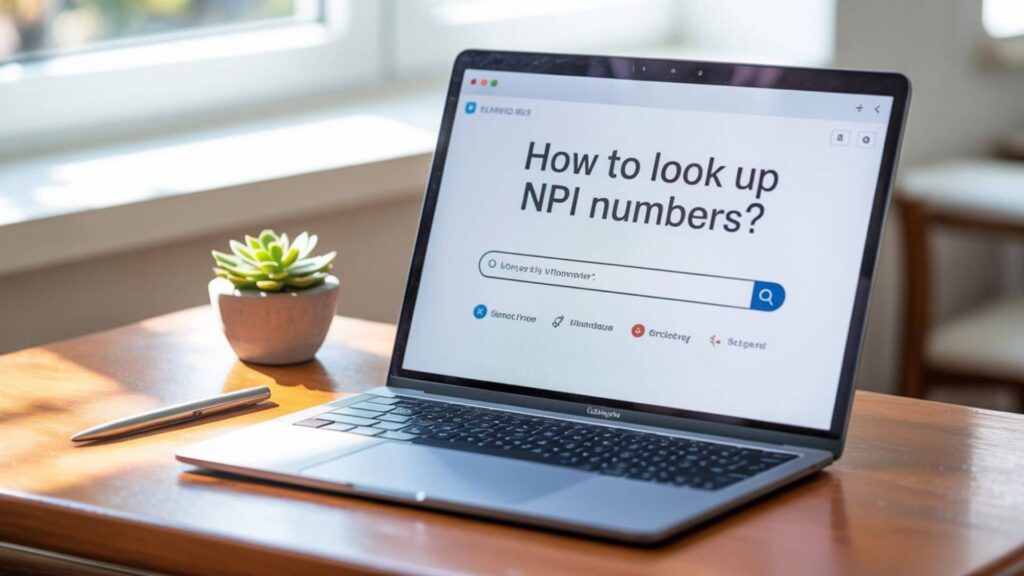In today’s rapidly evolving healthcare landscape, transparency, identity, and credibility play a vital role in how patients choose their care providers. One important way to ensure this trust is through systems like DEA (Drug Enforcement Administration) numbers and NPI (National Provider Identifier) numbers.
In this article, we’ll explore these identifiers and how they apply to a Seattle-based healthcare clinic known as Roots for Health. Whether you’re a patient, healthcare worker, or simply curious, this article will guide you through everything you need to know—clearly, calmly, and professionally.
What Is Roots for Health?
Before we talk about important medical numbers like the DEA or NPI, let’s first understand what Roots for Health is all about. Roots for Health is a holistic and integrative clinic located in Seattle, Washington.
The clinic focuses on naturopathic medicine, acupuncture, craniosacral therapy, massage therapy, and even perineural injection therapy. These approaches are designed to treat the whole person—physically, emotionally, and energetically.
The core philosophy at Roots for Health is about building strong foundations. Their mission includes:
- Helping people uncover the root causes of illness.
- Using natural, minimally invasive treatments.
- Empowering patients to take control of their well-being.
This clinic is not just about treatment—it’s about transformation.
What Services Does Roots for Health Offer?
Roots for Health integrates evidence-based natural medicine with conventional diagnostics and treatments. Their service menu includes:
- Naturopathic medicine: Root-cause identification using nutrition, supplements, and lifestyle.
- Acupuncture: Energy-flow balancing using traditional Chinese methods.
- Massage therapy: Musculoskeletal relief to improve circulation and reduce stress.
- Craniosacral therapy: Gentle manipulations of the skull and spine for nervous system balance.
- Pediatric support: Holistic care for children.
- IV therapy and Perineural injection therapy: To support immune function and reduce chronic pain.
What Is an NPI Number, and Why Does It Matter?

The National Provider Identifier (NPI) is a 10-digit unique identification number issued to healthcare providers in the United States by the Centers for Medicare & Medicaid Services (CMS). It is essential for:
- Filing health insurance claims
- Ensuring correct billing and patient data tracking
- Identifying practitioners in electronic health systems
Roots for Health’s NPI number is 1124664651. This means it is officially recognized as a legal and professional healthcare provider.
Roots for Health NPI Breakdown:
Let’s explore what the NPI data for Roots for Health reveals. According to NPI registry databases, here are the key details:
- Organization Name: Roots for Health, PLLC
- NPI Type: Organization (not individual)
- Primary Taxonomy: Acupuncturist – Code: 171100000X
- Secondary Taxonomies:
- Naturopath – Code: 175F00000X
- Massage Therapist – Code: 225700000X
- Location: 7621 Aurora Ave N, Seattle, WA 98103
- Phone: (206) 552-0070
- Authorized Official: Dr. Cortney Cusack, ND
Why This Matters? The NPI not only confirms legitimacy but also improves transparency. Patients can cross-check providers online to verify credentials, reducing the risk of healthcare fraud or unlicensed care.
What Is a DEA Number?
The Drug Enforcement Administration (DEA) registration number is another vital credential. It allows licensed practitioners to:
- Prescribe, administer, and dispense controlled substances
- Comply with the Controlled Substances Act (CSA)
- Register under federal law for narcotics handling
While not all practitioners need a DEA number, those prescribing medications like stimulants, sedatives, or pain relievers must have one.
Roots for Health has practitioners who may need DEA registration, especially if they integrate prescription therapies with natural medicine. Although their DEA registration details are not public, you can inquire with them directly or look them up via the DEA’s verification portal if you are a pharmacist or medical professional.
Why DEA and NPI Numbers Are Important Together?
When you combine NPI with DEA, you create a complete professional identity for a healthcare provider. Together, they:
- Enable insurance claims and reimbursement
- Allow prescription privileges (for DEA holders)
- Enhance transparency and accountability
- Provide audit trails for federal health systems
Whether you’re a patient, partner clinic, or pharmacy, being able to verify these identifiers offers peace of mind and regulatory assurance.
How to Look Up NPI Numbers?

Wondering how you can check if a provider has a valid NPI?
Use the NPI Registry:
Visit NPI Registry Lookup and search by:
- Provider Name
- Organization Name (e.g., Roots for Health)
- City and State (e.g., Seattle, WA)
You’ll find results including:
- NPI number
- Specialties
- Provider type
- Practice address
Why DEA Numbers Are Confidential?
It’s important to note that while you can search for NPI numbers, DEA numbers are private. This is for security reasons—especially given the nature of controlled substances.
If you’re a patient who needs to confirm whether your provider is authorized to prescribe a medication, you can:
- Ask the clinic directly
- Verify with your pharmacy
- Check if the prescription label includes the prescriber’s DEA number (often abbreviated)
Steps to Get Your DEA Number Quickly:
A DEA number is a special license from the U.S. Drug Enforcement Administration that lets healthcare providers legally prescribe controlled substances. If you’re a doctor, dentist, or other eligible medical professional, here’s how you can get one:
Receive Your DEA Number: Once approved, you’ll get your DEA number, which you can use to prescribe controlled medications legally.
Check Your Eligibility: Make sure you are licensed to practice medicine or healthcare in your state and allowed to prescribe medications.
Apply Online: Visit the official DEA Diversion Control Division website and fill out the application form (called the DEA Form 224 for practitioners).
Provide Required Information: You’ll need to give details like your state license number, personal information, and your practice location.
Pay the Application Fee: There is a fee (usually around $888 for 3 years) to process your application.
Wait for Approval: After submitting, the DEA will review your application. This process can take a few weeks.
Why This Matters to You as a Patient?
Understanding whether a clinic like Roots for Health has legitimate credentials is crucial when:
- You need prescriptions for regulated medicine.
- You’re submitting insurance claims.
- You want to verify a provider’s licensing and training.
It’s not just about compliance—it’s about safety, accountability, and trust.
Roots for Health in Context – Matters More Than You Think!
Roots for Health stands out in the Seattle wellness scene for its patient-centered philosophy. They integrate natural and modern modalities to support long-term wellness. Having properly credentialed staff, including those with NPI and DEA numbers, is part of how they build that trust.
Patients consistently describe the clinic as:
- “Grounded and empowering”
- “Deeply holistic”
“More than just a clinic—it’s a community”
These are the qualities that make Roots for Health not just a name, but a beacon of care.
The Future of Integrative Clinics & Regulatory Compliance:
Clinics like Roots for Health signal a future where alternative medicine and regulatory frameworks work together. Patients don’t have to choose between holistic care and clinical rigor—they can have both.
As the healthcare system increasingly recognizes the value of wellness, stress reduction, and nutrition, we’ll likely see more integration of naturopaths and acupuncturists in mainstream insurance networks.
FAQs:
1. Does Roots for Health in Seattle have a public NPI number?
Individual providers likely do. The organization may not list a group NPI publicly. You can check the NPI Registry online using the provider’s or clinic’s name for more details.
2. Can all Roots for Health providers write prescriptions?
No. Only qualified and licensed professionals with DEA numbers (such as certain naturopathic doctors) can do so.
3. Where can I verify if a Roots for Health provider is licensed?
Use the NPI Registry or Washington State Department of Health’s provider license lookup.
4. What type of treatments are offered at Roots for Health?
They offer naturopathic medicine, acupuncture, craniosacral therapy, massage, perineural injection therapy, and pediatric wellness.
5. Is it safe to get treatments from a clinic without a DEA number?
Yes, many holistic treatments don’t require DEA registration. DEA numbers are only needed for prescribing controlled substances.
6. Can I see my provider’s DEA number?
Not publicly. DEA numbers are confidential, but they appear on valid prescriptions and are known to pharmacies.
Final Thoughts:
When choosing a healthcare provider, don’t overlook the details—credentials matter. Both the DEA and NPI systems exist to protect you, ensuring that the people behind the prescription pad or massage table are trained, licensed, and accountable.
If you’re considering Roots for Health, rest assured: their focus on transparency, holistic care, and individualized attention is backed by a framework of professional integrity. And in a world where health is often treated like a commodity, that’s something truly worth rooting for.
Latest Post:
